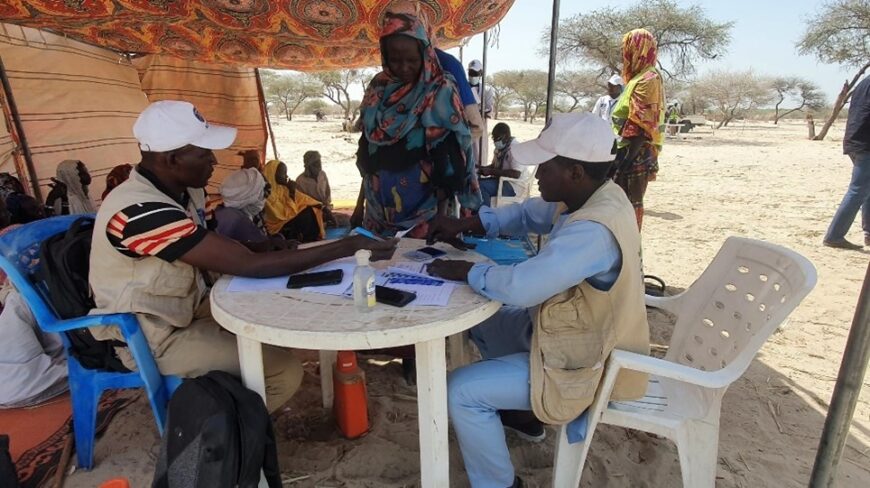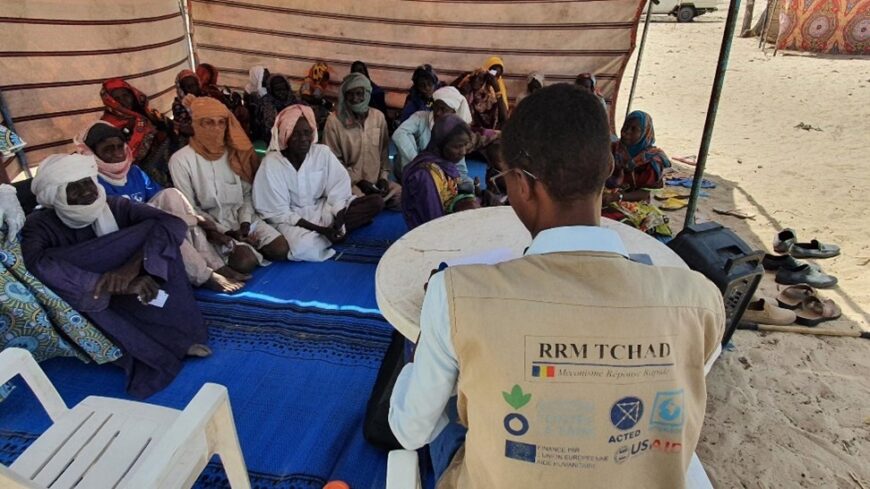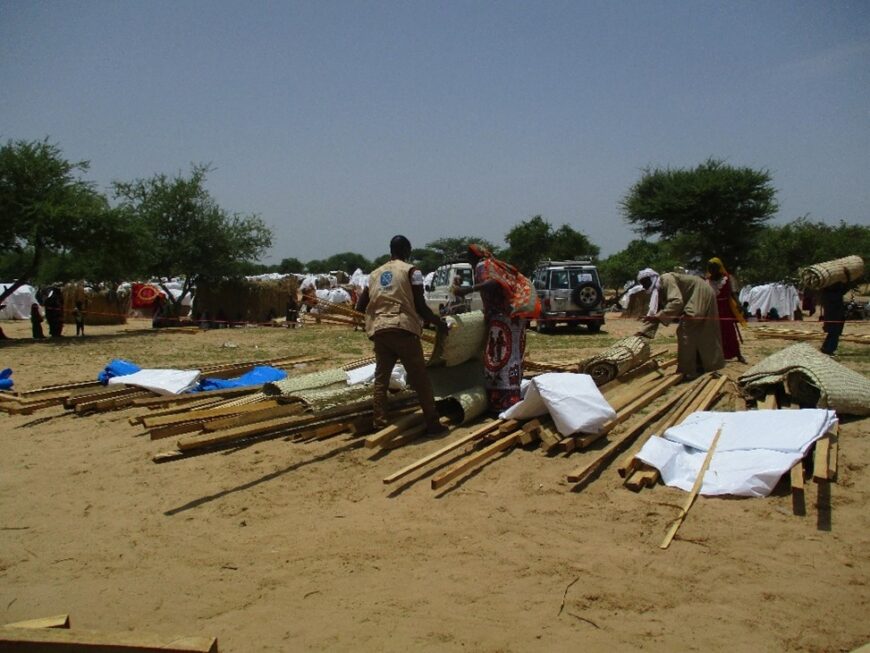Since May 2015, the Lac Province has been the target of attacks by non-state armed groups (GANE) affiliated to Boko Haram, resulting in major population displacements. There are currently 261,672 internally displaced people living in more than 250 spontaneous sites, particularly in the departments of Kaya, Mamdi and Fouli.
Since the beginning of the crisis in the Lake Chad basin, the Chadian government, local players and the humanitarian community have been working together to provide vital assistance and guarantee essential services in the various sites for the displaced.

Between June 2023 and May 2024, 169 displacement alerts were reported in the Lake Province, 83% of which were due to GANE attacks.
With the support of BHA and ECHO, through the RRM (Rapid Response Mechanism) consortium, in partnership with INTERSOS and ACF, Acted has been providing rapid emergency food security and shelter assistance since 2021 to people who have been newly displaced for less than 3 months following a GANE attack. This assistance package is complemented by support in essential household items (EHI) and water, hygiene and sanitation (WASH) from ACF and protection services from INTERSOS. The three partners implementing the project are putting their respective expertise and capabilities at the service of the consortium, enabling them to be rapidly mobilised, agile and present in remote areas. The Consortium is also carrying out extensive coordination work with the local authorities, the humanitarian community and the beneficiaries themselves, to continue to improve the relevance and quality of this emergency humanitarian response.
What is RRM?

Le RRM repose sur trois piliers :
- Un système de veille humanitaire reposant sur un réseau de points focaux permettant de détecter les chocs, recevoir les alertes et confirmer le déplacement de population
- Une évaluation rapide des besoins multisectoriels, couplée à une évaluation rapide de protection, lancée une fois l’alerte confirmé et visant à identifier les besoins, confirmer le positionnement du RRM et faire remonter les gaps à la communauté humanitaire
- Une intervention de 3 mois déclenchée par les partenaires du RRM au travers d’une assistance d’urgence multisectorielle modulable en fonction de l’évaluation des besoins (sécurité alimentaire, kits abris, kits AME, EHA, Protection)
Le RRM est un acteur clé de renforcement de la gestion de l’information et de la coordination au sein de la communauté humanitaire.
Reinforcing the dignity of those affected through the choice of assistance method
In order to reinforce the dignity of those affected, the preferred modality for food assistance provided by Acted in the RRM is cash transfer where markets are functional and protection is assured.
Rapid protection assessments identify protection risks on site and market surveys are conducted by Acted to monitor product availability and price trends.
To cover their food needs, each beneficiary receives a food ration of XAF 7,000 per month for 3 months. When the conditions are not met, food in kind may be distributed.
Alongside the food ration support, Acted screens for malnutrition at its intervention sites and refers and monitors children suffering from acute malnutrition in the appropriate health centres.
Between June 2023 and May 2024, Acted provided food assistance to more than 63,900 people.
Combining urgency and sustainability

Responding to the urgency of security shocks, RRM is also trying to reduce present and future climate shocks through environmental conservation activities as part of its assistance.
To help regenerate the soil and combat the advanced desertification in the Lac Province, Acted has launched a reforestation initiative linked to its RRM shelter assistance. The 325 volunteer households receive seedlings of species adapted to the area and are provided with the necessary equipment for their planting and maintenance. Over and above its environmental impact, this initiative is helping to strengthen the protective environment by improving the inhabited landscape and providing the necessary shade for households. This initiative is being carried out in collaboration with the Provincial Environment Delegation at Le Lac and the communities.
Since the beginning of the RRM in 2021, thanks to Acted’s intervention on the ground, 153,240 people have benefited from food aid and nearly 3,932 households from shelter. RRM remains essential in the Lac Province where the security situation remains volatile and food and nutritional insecurity affects more than 269,100 people in IPC 3 and above. Acted, along with its consortium partners, is working to ensure that emergency RRM interventions are followed by development operations to ensure dignified living conditions for displaced populations over the long term.
